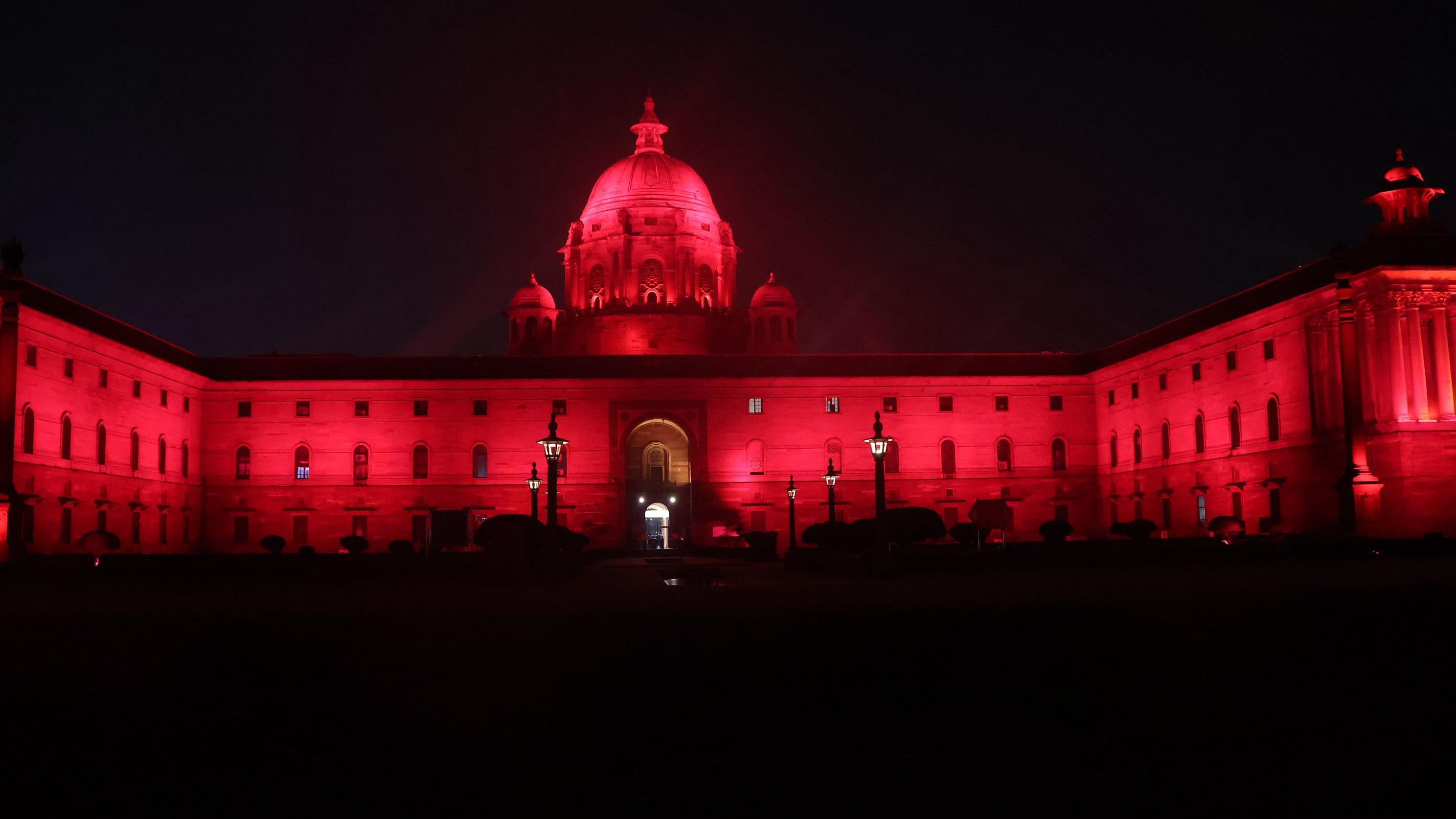
Rashtrapati Bhavan, South Block, and the Parliament were bathed in red to raise awareness about dyslexia. The ChangeInkk Foundation organised the event.
Credit: X/UNinIndia
New Delhi: The Rashtrapati Bhavan, South Block, and the Parliament were bathed in red to raise awareness about dyslexia.
The illumination marked the nation-wide 'Act4Dyslexia campaign' aimed at raising awareness about learning disabilities, which are estimated to affect 20 per cent of India’s population, including 35 million students, ChangeInkk Foundation, which organised the event, said Monday in a statement.
"In a bold step towards spreading awareness about dyslexia, the highest offices of the government and key monuments in Delhi — including Rashtrapati Bhavan, North and South Block, Parliament, and India Gate — in collaboration with UNESCO MGIEP & ChangeInkk Foundation were illuminated on Sunday in red, the colour for dyslexia awareness," Noopur Jhunjhunwala, the Foundation's co-founder and Trustee, said.
The event aligns with similar illuminations across major cities, including Patna, Ranchi, Jaipur, Kohima, Shimla, and Mumbai, spotlighting the need to remove stigma and foster greater understanding of dyslexia and other learning disabilities, she said.
Credit: X/UNinIndia
"By lighting up our cities and walking together, we hope to inspire a shift towards a more inclusive society where every individual, irrespective of learning disabilities, not only survives but thrives," Jhunjhunwala, a mother of a 16-year-old dyslexic teenage girl, said.
Often misunderstood as the "slow-learner syndrome," the people afflicted with learning disabilities struggle with comprehend, speak, read, write, spell, or to do mathematical calculations but are also associated with skills vital for higher-order thinking, including logical reasoning, critical thinking, problem-solving, and innovation.
Notably, 40 per cent of self-made millionaires have dyslexia, and many renowned inventors, like Albert Einstein, were dyslexic, according to the ChangeInkk foundation.
Founded by a family of dyslexics, the foundation is a leading non-profit that aims to unlock the potential of 200 million Indians with Specific Learning Disabilities (SLD), the statement said.
Specific Learning Disabilities, including dyslexia, were officially recognised under the Rights of Persons with Disabilities Act of 2016, which mandates equal opportunities in education, employment, and other aspects of life.
The National Education Policy 2020 reinforces this mandate, emphasising inclusive education from foundational to higher education levels, the statement said.
"This year, the campaign has expanded significantly, with over 1,600 walks organised across the country — spanning state capitals, districts, blocks, villages, and school levels during this month so far," Jhunjhunwala said, adding, October is observed as dyslexia awareness month.
The initiative engaged over 4 lakh participants, who collectively took over 2 billion steps toward driving awareness for 'Act4Dyslexia', she added.
These walks, which began on October 8, were led by state education departments, parent groups, and educational institutions in collaboration with over 150 organisations, she said.
The walks will end on October 30.